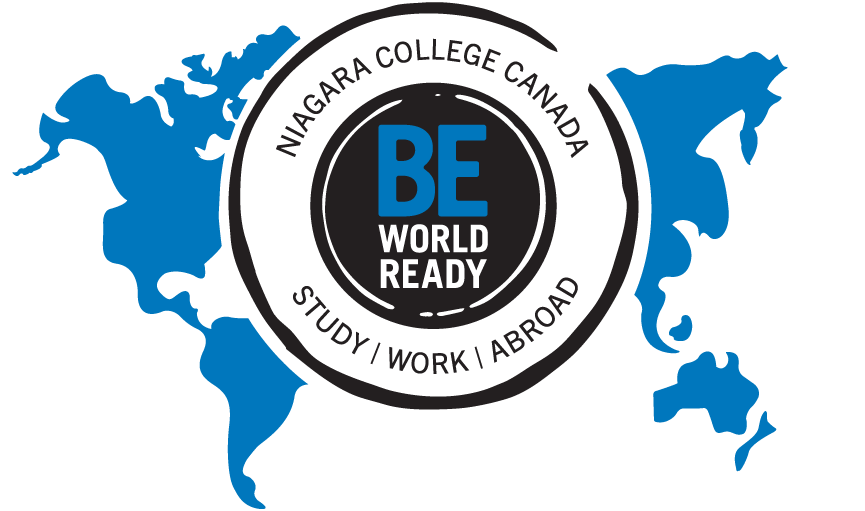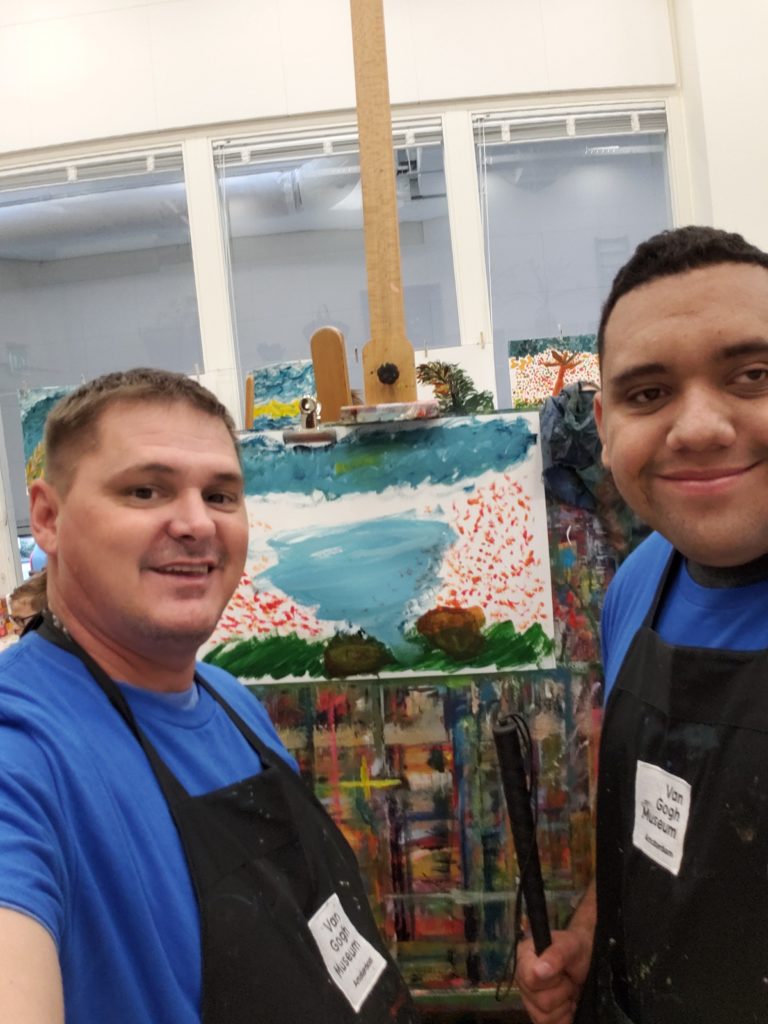The Be World Ready (BWR) program’s International Field Studies (IFS) trips are a key way Niagara College students have the opportunity to become further culturally and globally engaged and deepen intercultural competencies and awareness.
Child and Youth Care student, Daniel Gutierrez-Azcarate views traveling as a necessity in life. “We can read a textbook about other cultures but the most memorable thing is being there and adjusting to the cultures, understanding them from a hands on perspective,” said Gutierrez-Azcarate, who recently participated in the BWR program’s first IFS trip to Amsterdam, October 20 – 25. The international learning experience focused on youth and aging in the Netherlands as well as social care and mental health.
“I was inspired to go on this trip because it seemed like an incredible once in a lifetime opportunity for me to travel the world and learn about cultures on a first hand basis,” said Gutierrez-Azcarate. “As a visually impaired student, I don’t have much access to independence as most students but I got to grasp that as I was half way across the globe from home. It was incredible.”
Loving art, the Van Gogh museum was one of the most memorable moments on the trip for Gutierrez-Azcarate as he was able to participate in a painting session at a museum dedicated to one of his idols. He commented how the museum had paintings that had texture for the visually impaired to touch.
“I am also a member of the LGBTQ+ community, and the amount of pride flags I saw there was shocking and inclusive,” said Gutierrez-Azcarate as he spoke of how everyone seemed accepted in Amsterdam. He shared that he wants to visit Amsterdam again and could even imagine himself living there. “It impacted me because I feel as though a lot of countries can learn from that perspective. The rest of the world can learn to be accepting to the LGBTQ+ Community from both Canada and Netherlands.”
He also commented on how he perceived Amsterdam to be progressive in terms of gender equality. Gutierrez-Azcarate reflected on visiting Hogeweyks Dementia Village and World Wide Snoezelen, noting how both are considered revolutionary and successful organizations institutes founded by women. “As women in North America are sometimes not getting equal pay as men, European women are founders of corporations. I believe we can learn this from Amsterdam.”
Gutierrez-Azcarate accredited the success of his experiences in Amsterdam to the guidance and support of his faculty leads, classmates, tour guide and bus driver; “I would love to thank Mary-Christine Vanscoy and Christine Wilkinson for their accommodations throughout the trip; as a visual impaired student, I felt very much included within every activity since they assured that the tour guides were descriptive so I could have a better understanding on the environment around me,” he shared. He thanked both the faculty and another student on the trip, Christopher Allan, for their guidance in helping him experience Amsterdam to the fullest as it is a busy city to navigate.
Noting the different textures beneath his feet, the curves and uneven grounds of the Amsterdam’s streets, Gutierrez-Azcarate said it would have been very easy for him to trip if not for the assistance of group members. He noted how it caused him to reflect on how advanced Canada is in terms of its accessibility. IFS trips also present the lens for students to gain a better perspective of Canada and learning more about their home country.
His classmate, Allen, who assisted Gutierrez-Azcarate throughout the trip, echoed similar thoughts. “In Canada, there is an accessible entrance at nearly every building; however, when in Amsterdam, accessibility for those who need it really doesn’t exist,” said Allen, a first-year social service worker student. “Most buildings have no elevators, no wheelchair entrances, or door openers. I believe they could certainly learn from our model on this aspect.
Allan also believes that Canadians can also learn from the society he witnessed in Amsterdam as well, commenting on how the roads are more accessible due to the limited number of cars used. “There are bicycle parking garages because the primary mode of transportation is bike, he said. “Bicycles always have the right of way over cars as well as humans.”
Developing a deeper understanding of differentiating cultures, backgrounds and perspectives allows students to gain a more holistic awareness of themselves and the world they live in. Through experiencing the world, students are able to witness first-hand how issues, challenges and differences affecting people globally are addressed, and how they themselves can become responsive players by developing a more diverse knowledge skillset. Students are able to become more culturally and globally engaged as they develop the knowledge and understanding of varying perspectives.
“We should all travel elsewhere and have that sense of knowledge that not everywhere will be the same,” said Gutierrez-Azcarate.


